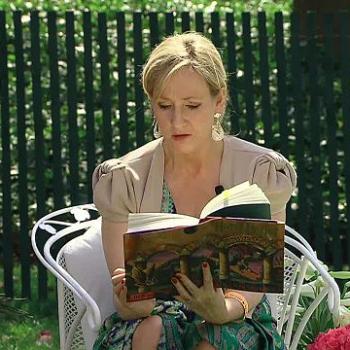 Many of you are probably familiar with the Christian movie productions of Sherwood Pictures. They’ve had great success with limited budgets on films like Facing the Giants, Fireproof, and Courageous. Each of their films covers a particular theme, like faith, marriage, or fatherhood. The other week, they released a new project entitled War Room, focused on prayer. It was a box office smash, vying with hot Hollywood releases like Straight Outta Compton. However, like the church’s other projects, it’s come under criticism for being poor quality and perhaps even presenting a distorted view of Christianity.
Many of you are probably familiar with the Christian movie productions of Sherwood Pictures. They’ve had great success with limited budgets on films like Facing the Giants, Fireproof, and Courageous. Each of their films covers a particular theme, like faith, marriage, or fatherhood. The other week, they released a new project entitled War Room, focused on prayer. It was a box office smash, vying with hot Hollywood releases like Straight Outta Compton. However, like the church’s other projects, it’s come under criticism for being poor quality and perhaps even presenting a distorted view of Christianity.
These criticisms are sometimes coming from other Christians, not just jaded mainstream reviewers. I recently read one article by John Mark Reynolds that was particularly unsparing. He called it “Genie Jesus and the War Room Problem.” He argues that all the Kendricks’ movies have the same theological flaw: They give Christians the impression that any problem a Christian has can be solved by the appropriate amount of faith and prayer. In other words, he’s accusing them of presenting a prosperity gospel. He points out that for many people, living out the Christian faith will involve unanswered prayers, suffering, and sad endings. In War Room, a wife is urged to remain in a bad marriage and pray for her nasty, philandering husband, who ultimately repents. Reynolds cites the examples of many women like her who will pray fervently and see no change.
Okay, so we know happy endings aren’t universal, but is it fair to accuse Sherwood’s films of generally presenting a false gospel? Do they really preach a “genie Jesus”? Will Christians walk away with a false idea of what faith, prayer and provision really mean? I think a more careful look reveals that while Reynolds raises interesting concerns, he’s being disproportionately harsh. (Full disclosure though: I haven’t seen War Room yet, just previous Sherwood movies.)
First of all, I find it amusing that the Kendrick brothers are now being criticized from the left for encouraging women to stick it out in bad marriages, whereas Fireproof was lambasted by the far right for putting the burden on the husband. It’s like no matter what they try to say about marriage, they can’t win. While I may not personally agree with all the particulars of their advice, I think it’s healthy that they’ve struck a nerve on both sides. (Besides, a clip from War Room also shows the husband getting tough talk from a Christian brother, so it’s hardly letting him off the hook, though you might get that impression from some reviews.) I think Christians have developed too casual of an attitude towards divorce, and Reynolds isn’t that clear in his post about whether he would limit himself to Jesus’ (potential) exceptions. He seems to imply that a woman might be justified in walking out even if the husband isn’t necessarily unfaithful, just cold, nasty, verbally abusive or whatever. Now in fact, the husband in War Room is teetering on the edge of infidelity, but even if a wife suspects this, it’s not ridiculous to suggest a waiting period where she hopes and prays for repentance.
Now, to address the accusation of prosperity preaching, I don’t deny that people might get a dubious impression from some of the Kendrick brothers’ stories. And some of the language that’s been used to promote War Room in particular might raise concerns. The film is promoting a system where Christians create “checklists” of prayer requests that you then “check off” one by one as they’re answered. As one of the brothers said in an interview, “It’s great to be able to check off those prayer requests and see that God is alive and well in your life.” But as Reynolds pointed out, what about Christians whose prayers go unanswered? Do we tell them they’re just not doing prayer right? Or worse, that God must not be “alive and well” in their life if they’re not getting “results”? The brothers may want to approach these questions with more nuance.
Their breakout picture Facing the Giants followed this same pattern and faced similar critiques. By the end of the film, all the characters have experienced spiritual revival and subsequently had their problems resolved. The team wins the big game. Their kicker makes a long shot field goal after being mediocre at best for the majority of the film. The main couple is no longer infertile or financially struggling. Et cetera. However, in fairness, things get worse for all the characters before they get better, even after they make a renewed faith commitment. The team works hard but has to swallow another string of losses before they see improvement. The wife gets her hopes up before getting a negative result, when she prays tearfully, “I will still love you, Lord. I will still love you.” But… then come the twists: Turns out the pregnancy test was switched by accident! The other team was cheating! This same day-saving plot device comes up in Courageous, when a man is told to lie or lose his job, only to find out it was just a test and he’s getting promoted. While these characters remain humble and don’t lose their faith even when circumstances seem to be against them, the bait and switch motif is a story-telling crutch for the Kendricks.
However, it’s inaccurate to say that Sherwood characters never experience actual loss or always have a perfect ending. In Courageous, the protagonist loses his little girl in a car accident and spends much of the film wrestling with guilt over how he could have been more present and affectionate for her. There’s no genie Jesus to bring her back. It’s a permanent grief he must confront and carry. Another Courageous character is exposed for corruption and faces prison time, though he shows signs of remorse. Again, not the happiest of endings, especially for his young son. I would encourage the Kendricks to explore more story-lines like these, where there is potential for redemption without perfect resolution. It’s also worth noting that when the wife in War Room prays for her husband, part of her prayer is that his deceit would be exposed (which, in fact, it is, even if the consequences aren’t as harsh as they probably would be in real life).
The truth is that downer endings are rare, even in mainstream Hollywood fare. The fact that the Kendricks want their protagonists to have happy endings is hardly unique to evangelical movie-making. And especially when you’re portraying things like marital conflict, it’s very difficult to resolve that in a way that’s neither completely happy nor depressingly sad. However, I have noted that Catholic film-makers are less afraid to portray stories of suffering and martyrdom, which John Mark Reynolds prefers. He would probably argue that there’s a richer theology of suffering in Catholicism than in evangelicalism, as well as a longer history in which to find inspiring martyr stories. But I disagree with his claim that the Sherwood movies are inherently trivial and shallow next to such harrowing tales of persecution. The Kendrick brothers are telling stories about ordinary people who have to make ordinary choices. Their characters don’t have to be literally burned at the stake in order to grow spiritually.
Of course, the film-making may sometimes be bland, stilted, or didactic, but that’s a separate criticism. I am not saying that the Kendrick brothers are making great movies, or movies I would count among my favorites. I do not expect them to achieve the transcendent balance of grief and joy that great Christian novelists like Evelyn Waugh and and Marilynne Robinson have achieved in their work (Brideshead Revisited, Gilead). And I do wish the pickings were a little less slim for people who want something more artistically authentic. I think the Kendricks should be consulting honest film lovers who can offer constructive advice on how to improve (people like the guys at More Than One Lesson, whose Christian podcast spent an hour and a half on an in-depth review full of specific, helpful criticisms). However, I don’t want my judgment to be clouded by Christian culture snobbery, which I fear has happened to Reynolds and his ilk. I sense in his article a general distaste towards mainstream evangelicalism that’s causing him to exaggerate his case and overlook aspects of these movies that actually do have merit. I’m not afraid to cry “Heresy!” even if it involves a sacred cow of evangelicalism, but it’s not an accusation I would rush to make without clearer warning signs. In my opinion, lobbing it at Sherwood pictures is an overreaction.












